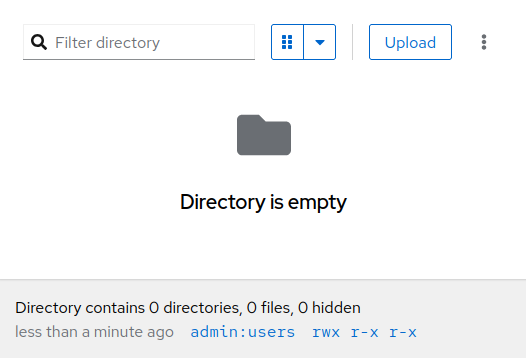Cockpit 332
Cockpit is the modern Linux admin interface. We release regularly.
Here are the release notes from Cockpit 332, cockpit-machines 327, cockpit-podman 100, and cockpit-files 15:
cockpit/ws container: Include cockpit-files
The cockpit/ws container now includes cockpit-files. When you log into a remote machine that does not have any Cockpit packages installed (package-less mode), the “Files” page is now available.
Package-less session for all supported operating systems
Cockpit 327 introduced support for connecting to remote machines without any installed Cockpit packages. That only worked if the local and remote machine had the same operating system version. This version extends this “package-less session” feature to all operating systems which Cockpit continuously tests. At the time of writing this includes:
- Arch Linux
- CentOS Stream 9, 10
- Debian 12, testing/unstable
- Fedora Linux 40, 41, 42 (rawhide)
- Red Hat Enterprise Linux 8, 9, 10
- Ubuntu 22.04 LTS, 24.04 LTS, 24.10
This list will change over time, due to new distribution releases and the end of support for each version.
Overview: Show system boot in metrics

Machines: “Launch viewer” now uses correct address
The “Launch viewer” button in a virtual machine’s “Console” card now uses the same address that Cockpit uses to connect to the virtual machine host. Previously, the button incorrectly attempted to connect to either the local machine where the browser is running (when the listening address was set to “localhost”) or to an invalid “0.0.0.0” address (when configured to listen to all interfaces).
Podman: Automatically start podman.socket
If podman.socket is not already running on the system or user session, cockpit-podman will now automatically start the unit. It is no longer necessary to manually start or enable the podman service.
Podman: Improve quadlet compatibility
Container-based services (aka: “quadlets”) are now labeled with a “service” badge in the containers overview. Additionally, the option to rename quadlets has been removed, as renaming must take place in the systemd service .container file, which are often found in /etc/containers/systemd/.

Files: Show user:group in the footer
The footer now shows the user and group of the current directory.

Try it out
Cockpit 332, cockpit-machines 327, cockpit-podman 100, and cockpit-files 15 are available now:
